February 8-10, 2012
On Wednesday, February 8, I boarded a minibus headed from Pristina to Tirana, Albania, where I met my dear friend Agim K., who accompanied me in another minibus to Shkodra, Albania, the site of my first Fulbright in 2003. During the first six months of that year, I taught American lit and research strategies to sophomores at the University of Shkodra; while doing so, I lived in an upstairs apartment of Agim’s house. He shared the lower floor with his wife Zushi and his then-18-year-old daughter Afrora.
I wrote a book about this experience in Shkodra. Titled Teaching American Literature at an East European University: Explicating the Rhetoric of Liberty (Edwin Mellen Press, 2006), the book focuses primarily on the academic adventure of teaching American literature—its powerful narratives of liberty and slavery, of justice and oppression—to twenty-year olds who aspired to those liberties because they knew from their own and their families’ experiences what it meant to grow up under communist oppression and an educational system that privileged lecturing and scorned writing-to-learn.
But, as the preface explains, the real inspiration for the book came from my Albanian family. Though relatively well-off now, the Ks endured tremendous hardships, as did most Albanians, during the communist years, 1944-1989, and during the hard economic times that followed. In narrating his family’s struggles, Agim always asked, in tearful, despairing tones, “What is possible?” after describing the horrors of labor camps and suppressed faith. In far more hearty tones, he asked the same question after outlining his hopes for the future, always keeping despair at bay with his mantra, “step-by-step,” his courageous Faulknerian conviction that he and his family will ‘not only endure but prevail.’
Naturally, thoughts of the Agim, Zushi, and Afrora filled my head and my heart as I rode with five other passengers for six hours through Kosova’s deep snow and then through Albania’s stunning northeastern mountains pictured, however inadequately, here. After this (roughly) 250 mile trek, we found sun and no snow in Tirana, Albania’s capital (see photo). After Agim and I met up, we took another van to Shkodra, about 70 miles to the north, almost to Montegro.
**Click on the first picture to scroll through the gallery in a larger format.
- Northeastern mountains, Albania
- Tirana, Capital of Albania
Though I had only two days to spend with them, we used the time well to reminisce about 2003 and to brag shamelessly about our families. They couldn’t hear enough about my wife Judy; our ‘kids,’ Heather, Anna, and Matt, our son-in-law Roy, our daughter-in-law Kristen; and our grandkids, Josh, Nate, Roy, and brand-new Ellie. Returning the favor, Agim and Zushi told me at length about Afrora’s plans to marry Erjon, a young man in Vienna; they also described their up-coming trip to the United States to work and live near their son Andi, who will soon marry Ilma, the beautiful, dark-haired young woman pictured here, next to her lovely soon-to-be sister-in-law Afrora. The other photo features Agim and Zushi, the smug parents. Life is good.
**Click on the first picture to scroll through the gallery in a larger format.
- Our daughter Heather with her sons Josh & Nate, Dec 2011
- Our daughter Anna with her Roys, Oct 2011
- Our daughter-in-law Kristen, son Matt, and granddaughter Ellie at the beach, Feb 2012
- Our grandsons Josh, Roy & Nate, Nov 2011
- Our granddaughter Ellie Rae, Feb 2012
- Agim & Zushi’s daughter Afrora (L) and soon-to-be daughter-in-law Ilma (R), who will wed their son Andi; Feb 2012
- Our dear friends Agim (R) and Zushi (L), who were also my hosts in 2003; Feb 2012














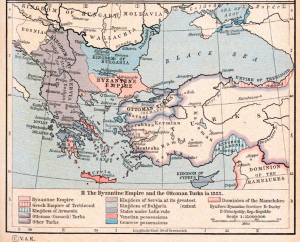
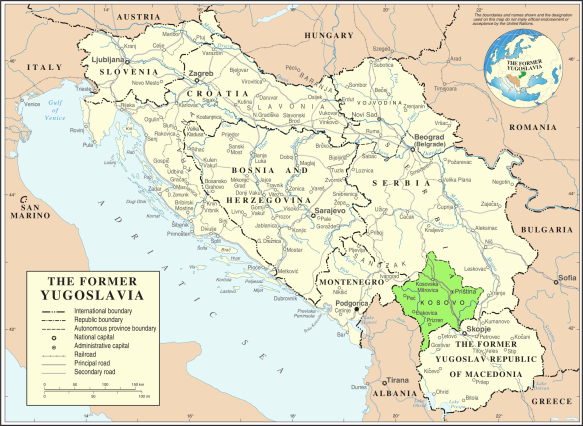
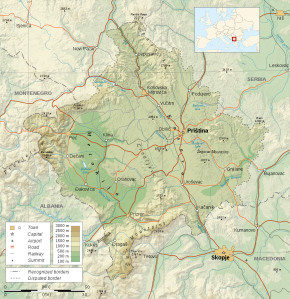
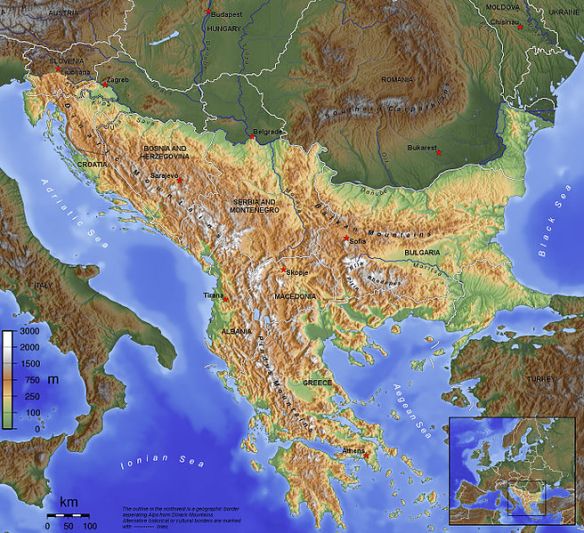
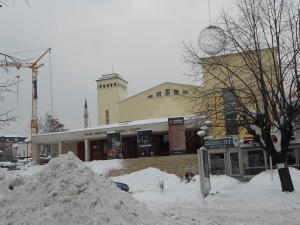
![Faculty of Filologjik_1 feb 2012 Fakulteti i Filologjisë (Faculty [College] of Philology)](https://reflectionsonkosovo.files.wordpress.com/2012/02/faculty-of-filologjik_1-feb-2012.jpg?w=300&h=225)
